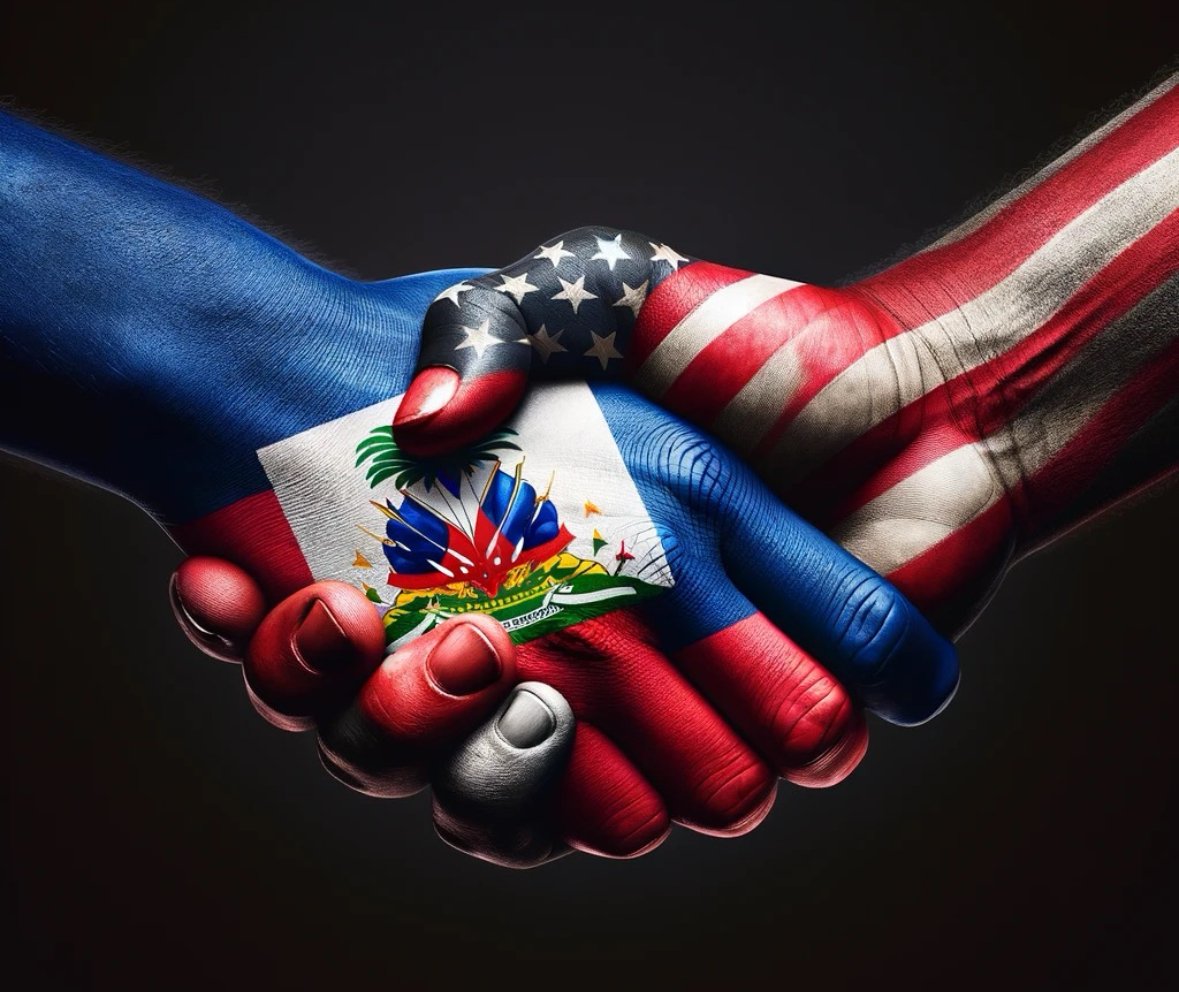United We Prosper: The Case for U.S. Engagement in Haiti
Supporting Haiti is a strategic decision that could significantly benefit the United States in several ways. By investing in Haiti's stability and growth, pressing immigration issues can be addressed, foreign influence near U.S. borders can be countered, and economic prospects for American businesses can be boosted. Extending a helping hand to Haiti is not just an act of compassion but a pragmatic choice that serves national interests.
Addressing Immigration Challenges and Enhancing Security
Illegal immigration remains a significant concern for the United States. Economic hardships and instability in Haiti have driven many Haitians to seek better opportunities elsewhere, often attempting to enter the country illegally. In recent years, there has been a noticeable increase in the number of Haitian migrants arriving at the U.S.-Mexico border. By fostering economic growth and stability in Haiti, one of the root causes of this migration can be addressed. When people have hope and opportunities at home, they are less likely to embark on dangerous journeys abroad.
A stable Haiti also enhances U.S. national security. Poverty and unrest can be breeding grounds for drug and weapons trafficking, which have direct implications for communities in the United States. Strengthening Haiti's institutions and economy can lead to better cooperation on customs and border security, helping to combat the flow of illicit drugs and other criminal activities that threaten American safety.
Strengthening Strategic Influence and Countering Foreign Encroachment
China and Russia have been expanding their influence in the Western Hemisphere. China, for example, has increased investments and diplomatic efforts in the Caribbean and Latin America in a very real way. It is already very normal to see large murals of Vladimir Putan and Xi Jinping hand painted on the walls of gang controlled territories throughout Haiti. By deepening engagement with Haiti, the United States can counter these efforts, ensuring that a neighboring country remains aligned with democratic values and U.S. interests.
The Caribbean's proximity to the United States makes it a region of significant strategic importance. Investing in Haiti enhances the ability to monitor and respond to activities that could threaten national security. It's a proactive strategy to safeguard against potential risks emerging close to home.
Boosting Economic Opportunities and Promoting Supply Chain Resilience
Recent global events have highlighted the risks of over-reliance on distant markets for manufacturing and supply chains. While bringing manufacturing jobs back to the United States is a priority, some labor-intensive jobs are not economically feasible domestically. Haiti presents an opportunity to relocate these roles closer to home, reducing dependence on distant and potentially adversarial nations.
Haiti has a young and dynamic workforce. This presents an opportunity for industries requiring labor-intensive operations. The country's proximity to the United States reduces shipping times and costs compared to sourcing from Asia.
Trade between the United States and Haiti has potential for growth. The U.S. is Haiti's primary trading partner. Imports from Haiti consisted mainly of apparel and agricultural products. By investing in Haiti's economy, trade volumes could increase, benefiting businesses in both countries.
Several U.S. companies have successfully invested in Haiti, demonstrating the potential for profitable partnerships. The apparel industry, for instance, has benefited from trade preferences under the Haitian Hemispheric Opportunity through Partnership Encouragement (HOPE) Act and the Haiti Economic Lift Program (HELP) Act. These initiatives allow for duty-free access of Haitian-made apparel to the U.S. market, encouraging investment and job creation in Haiti.
A notable example is the Caracol Industrial Park in northern Haiti, which has attracted foreign investment and created thousands of jobs. Companies operating there have been able to produce goods for the U.S. market efficiently due to favorable trade terms and the available workforce.
Comparatively, countries like the Dominican Republic have experienced significant economic growth through foreign investment and robust trade relationships with the United States. By adopting similar strategies in Haiti, there is potential for comparable success, leading to increased stability and prosperity in the region.
Supporting Haiti aligns with fundamental values of national security, economic prosperity, and strategic leadership. By addressing factors that drive illegal migration, borders are better protected, and the rule of law is upheld. Countering foreign influence safeguards geopolitical interests and maintains stability in a critical region. Economically, investing in Haiti helps reduce dependence on distant markets and offers practical benefits to U.S. businesses.
This mutually advantageous relationship can lead to sustained growth and stability for both nations. It is an opportune time to take decisive action that benefits both nations.

